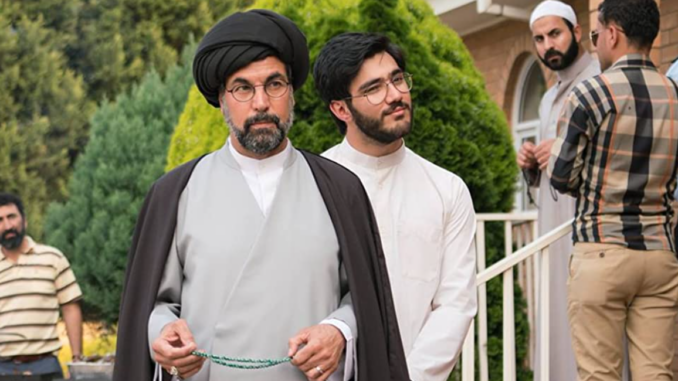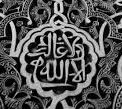
It’s been a while. My apologies. Sometimes it’s hard to write. Here’s a small item to break the block.
Browsing Netflix a few weeks ago, I discovered “Ali’s Wedding,” an Australian rom-com with a twist. The movie follows an Iraqi refugee named Ali (Osamah Sami, who also wrote the semi-autobiographical script). He is a young man torn between his dreams and his sense of duty to family/community. Set inside Australia’s Iraqi Shi’a community, the film offered me a kind of look into a parallel universe. Some dynamics hit close to home.
You should watch the film, so I’ll try not to give away too much of the plot. The essence is that Ali’s older brother was meant to become a doctor but died some years ago from a landmine on the Iranian border. So Ali feels compelled to pick up the medical mantle to please his father, who has also arranged a marriage for Ali. But Ali gets bad test scores, dreams of being an actor, and does not love his intended wife. Instead he falls for Dianne, a Lebanese medical student. On one of their early secret “dates”, Dianne and Ali are surrounded by young Australian couples making out during movie screening. Amidst the amorous hubbub, the two gingerly touch each other’s pinkies.
When one of Ali’s plays (about Saddam Hussein) gets booked by an Iraqi community in Michigan, Ali suggests to Dianne that he “jump ship” while visiting America. In his wacky plan, Dianne should join him in the US because “In America, we can live like Australians!” It’s Ali’s way of recognizing how he often feels suffocated inside his expat community.
Making things even more complicated is that Ali’s father is a cleric and spiritual leader of the local community. He is a traditional yet relatively open-minded man, who stages plays and musical for the community that Ali often acts in. But there is a rival: the dour but ambitious Sayyed Ghaffar, who badly wants to replace Ali’s father as imam of the mosque. Trained in Iranian academies in the mold of the Iranian regime’s clerics, Ghaffar is self-righteous with no sense of humor. He wears a black turban to show off his direct descent from the Prophet Muhammad. When he hears Ali has been invited to perform his play in Detroit, he wonders why anyone would want to visit “The Great Satan.”
Sayyed Ghaffar makes his move for control by showing mosque members incriminating pictures of Ali and Dianne dating, forcing Ali’s father to tender his resignation because of the “un-Islamic actions” of his son. Yet the mosque members refuse the resignation because they don’t want Ghaffar as their Imam. He is far too judgmental and severe. Ghaffar then yells at people for preferring someone with a white turban (worn by Ali’s father) over his own black one. But even this appeal to the authority falls on deaf ears. Ghaffar storms out of the mosque, followed by only a few followers, including his brother-in-law (who apologies in advance to Ali’s father for leaving out of obligation to his wife… and that he will be back in a few minutes).
The mosque confrontation touched me, beautifully encapsulated the difference between a humane approach religion (represented by Ali’s father) and a haranguing one (Ghaffar style) that constantly calls out people for ‘deviating’ from ‘true’ Islam. Ali’s father smiles and encourages his community to improve themselves without sounding arrogant or patronizing. During his last sermon resigning, Ali’s father recounts the story of the donkey in Kandahar:
During the Abbasid Dynasty, a man and his son rode on a donkey. But once they reached the town of Kandahar the people abused them. They said, “Poor donkey. You make him carry two fit men.”
So the father rode and the son walked. But when they arrived at the next town, people cried, “Look at this fellow. He drags his young defenseless boy through the desert heat and he enjoys the ride of a lifetime. “
So in the next town, the son rode and father walked. But people shouted at the boy, “You are young. You are healthy. You make your elderly father suffer. He is marching in heat.”
So together, the father and his son decided to walk with their donkey. As they passed through the next town, people laughed.
“Look at these two idiots. Why don’t they ride their donkey?” And in every town, people criticized them.
In the end, the father said, “Stuff this.” And he and the boy carried the donkey on their back.
But…We tie ourselves up in terrible knots trying to live up to the judgments of others.
We certainly do. I often wonder if I’m riding the donkey or carrying it – and of course, I can’t help but worry what other people in my community think of me. That’s why I have to remain anonymous.
